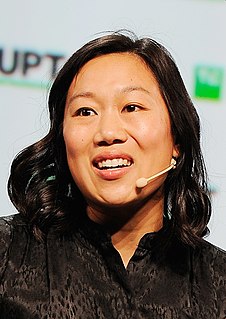A Quote by Wen Jiabao
There are two books that I often travel with; one is 'The Theory on Moral Sentiments' by Adam Smith. The other is 'The Meditations.' It's not that I agree with either views expressed in the books, but I believe ideas and thoughts of older generations can offer food for thought for the current generation.
Related Quotes
Market forces have no intrinsically moral direction, which is why, before he wrote The Wealth of Nations, Adam Smith wrote The Theory of Moral Sentiments. Ethics should precede economics. But it doesn't have to. . . . We know this because we've seen the results of capitalism without conscience: the pollution of the air we breathe, the water we drink, and the food we eat; the endangerment of workers; and the sale of dangerous products - from cars to toys to drugs. All in pursuit of ever-greater profits.
Adam Smith's image of competition in the marketplace was intended as an adjunct to his detailed description of human motivation in The Theory of Moral Sentiments , in which the pursuit of profit is tempered at every juncture by sympathy and benevolence, and by the posture of the "impartial spectator" which is forced on us by our moral nature.
The current publishing scene is extremely good for the big, popular books. They sell them brilliantly, market them and all that. It is not good for the little books. And really valuable books have been allowed to go out of print. In the old days, the publishers knew that these difficult books, the books that appeal only to a minority, were very productive in the long run. Because they're probably the books that will be read in the next generation.
To see what books were available for my older students, I made many trips to the library. If a book looked interesting, I checked it out. I once went home with 30 books! It was then that I realized that kids' novels had the shape of real books, and I began to get ideas for young adult novels and juvenile books.
I have a whole section of a filing cabinet in my office full of ideas. Some are ideas for books or articles I want to write. One is a romantic comedy; one's about my dad's life. I've also got ideas for books on moral relativism as well as democracy and human nature. There's also a really cool concept for a spy novel.
Only idiots or snobs ever really thought less of 'genre books' of course. There are stupid books and there are smart books. There are well-written books and badly written books. There are fun books and boring books. All of these distinctions are vastly more important than the distinction between the literary and the non-literary.
Often they [writers on the study of management] have a point of view based upon intuition and experience. They then offer a cadence of two-paragraph examples carefully selected to "prove" their theory, and then they write "one size fits all" books. The message is, "If you'd do what these companies did, you'd be successful too."
Few of those who fill the world with books, have any pretensions to the hope either of pleasing or instructing. They have often no other task than to lay two books before them, out of which they compile a third, without any new material of their own, and with very little application of judgment to those which former authors have supplied.












































